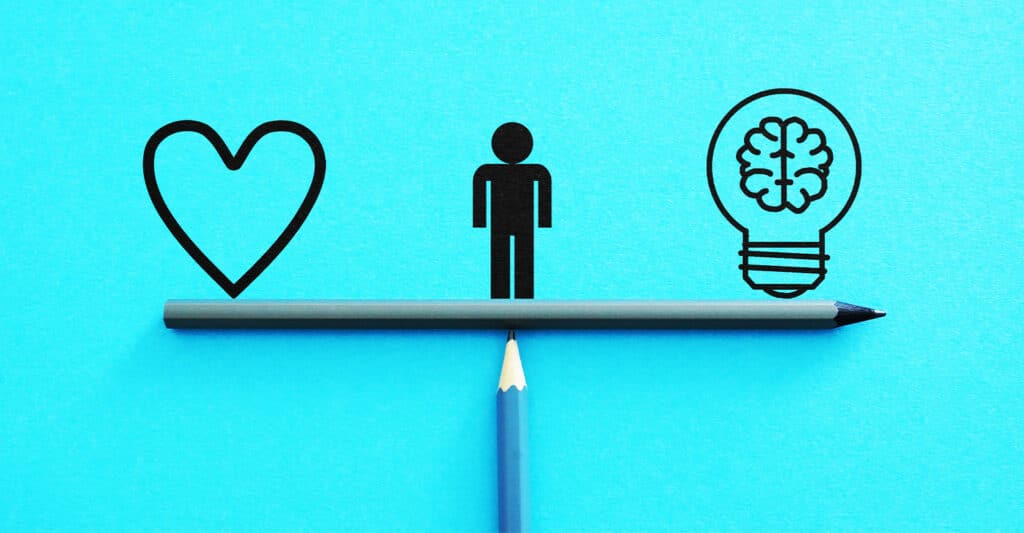Emotional intelligence (EQ) is recognizing and managing your emotions. It also involves understanding others’ feelings. Improving EQ can lead to better relationships, decision-making, and handling stress. Unlike IQ, you can improve emotional intelligence with practice. Let’s explore seven simple methods that can help improve emotional intelligence.
What is Emotional Intelligence?
Emotional intelligence refers to how well you understand and manage emotions. It includes recognizing your feelings and the feelings of others. A person with high emotional intelligence can respond calmly to challenges. They are also good at empathizing with others and managing relationships. Emotional intelligence affects many areas of life. For example, it can influence how you communicate with friends and family. It can also impact your performance at work. People with strong emotional intelligence often handle stress better. They are more likely to build positive relationships and make thoughtful decisions.
Why is Emotional Intelligence Important?

Emotional intelligence plays a big role in personal and professional success. It helps you manage stress, understand others, and communicate better. People with strong EQ are often seen as good leaders. They know how to stay calm under pressure and solve conflicts. Emotional intelligence can also improve your social interactions. When you understand your emotions, you can express yourself more clearly. This makes it easier to build strong connections with others. Good EQ helps you stay positive, even in tough situations. It enables you to recognize when others need support, making you a better friend or coworker.
7 Effective Methods to Improve Emotional Intelligence
It takes time to improve emotional intelligence, but it’s worth the effort. Here are seven practical methods you can try to improve your emotional intelligence.
Practice Self-Awareness
Self-awareness is knowing your emotions and how they affect your thoughts and actions. When you are self-aware, you understand what triggers your feelings. This helps you respond to situations instead of just reacting. To practice self-awareness, try to check in with yourself daily. Notice how you feel in different situations. Write down your thoughts in a journal to track patterns in your emotions. Another good practice is mindfulness. Spend a few minutes each day focusing on your breathing. This helps you become more aware of the present moment. Over time, you will get better at recognizing your emotions.
Manage Your Emotions
Managing emotions means staying in control, especially when faced with stress. It involves finding healthy ways to deal with anger, sadness, or frustration. When you manage your emotions well, you can think clearly in tough moments. To improve this skill, practice deep breathing when you feel overwhelmed. Taking slow breaths helps calm your mind and body. You can also take a short break when you feel stressed. Step away from the situation and return when you feel more balanced. Writing down your feelings can help, too. It lets you express your emotions without reacting instantly.
Improve Empathy Skills

Empathy is the ability to understand what others are feeling. It allows you to see things from their perspective. Empathy strengthens relationships because it shows you care about others’ feelings. One way to practice empathy is to listen carefully when others speak. Try not to interrupt or think about your reply while they are talking. Focus on their words and body language. You can also imagine how you would feel in their situation. This helps you connect with their emotions better. Reading books or watching movies about different experiences can also boost empathy.
Build Stronger Relationships
Good relationships are built on trust and understanding. When you actively listen, you show others that you value their thoughts. This creates a stronger bond. Try to ask open-ended questions when talking to others. This encourages deeper conversations. Share your thoughts openly and honestly, too. It helps others understand you better. Maintaining eye contact and nodding while others speak shows you are engaged. Building stronger relationships takes time, but simple actions make a big difference. When you practice these habits, your connections with others will improve.
Enhance Social Skills
Strong social skills are key to working well with others. They help you express yourself clearly and listen to others. Improving your social skills can make team projects smoother and more enjoyable. To boost these skills, try to make small talk with people you meet. This helps you become more comfortable in different social settings. Practice introducing yourself confidently and asking people about their interests. Pay attention to non-verbal cues like body language and tone of voice. Understanding these cues can help you respond more appropriately in conversations.
Stay Positive in Challenging Times

A positive outlook helps you manage stress better. It allows you to focus on solutions rather than dwelling on problems. Staying positive doesn’t mean ignoring challenges. It means finding a way to cope with them constructively. Practice gratitude by listing three things you are thankful for each day. This can shift your focus from what’s wrong to what’s right. Surround yourself with positive influences, like friends who uplift you. If you find yourself feeling down, take a moment to breathe deeply. Remind yourself that setbacks are temporary.
Seek Feedback and Self-Reflect
Feedback is a great way to learn about yourself. It helps you see how others perceive your actions and behavior. Regular self-reflection helps you understand your strengths and areas for improvement. Ask trusted friends or coworkers for honest feedback. It may feel uncomfortable at first, but it helps you grow. Take time to think about the feedback and how you can improve. Reflect on your actions at the end of each day. Consider what went well and what you could do better next time. This habit makes it easier to spot patterns in your behavior and make positive changes.
Closing Thoughts
It takes time to improve emotional intelligence, but the benefits make it worthwhile. It helps you communicate better, build stronger relationships, and manage stress more effectively. You can gradually enhance your emotional intelligence by using these seven methods—like practicing self-awareness, managing emotions, and seeking feedback. The changes may seem small at first, but over time, they can transform how you interact with others and handle challenges.
Emotional intelligence is not about being perfect; it’s about making progress. Everyone can work on understanding their emotions and learning how to respond thoughtfully. Consistency is key. The more you practice these habits, the more natural they become. Start with small steps, such as checking in with yourself each day or practicing empathy during conversations. These methods can help you at work, in friendships, and in your personal life. Remember, emotional intelligence is a lifelong journey. The skills you develop will help you adapt to new situations and connect with others in meaningful ways. By focusing on improving emotional intelligence, you set yourself up for long-term success, both personally and professionally.




